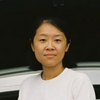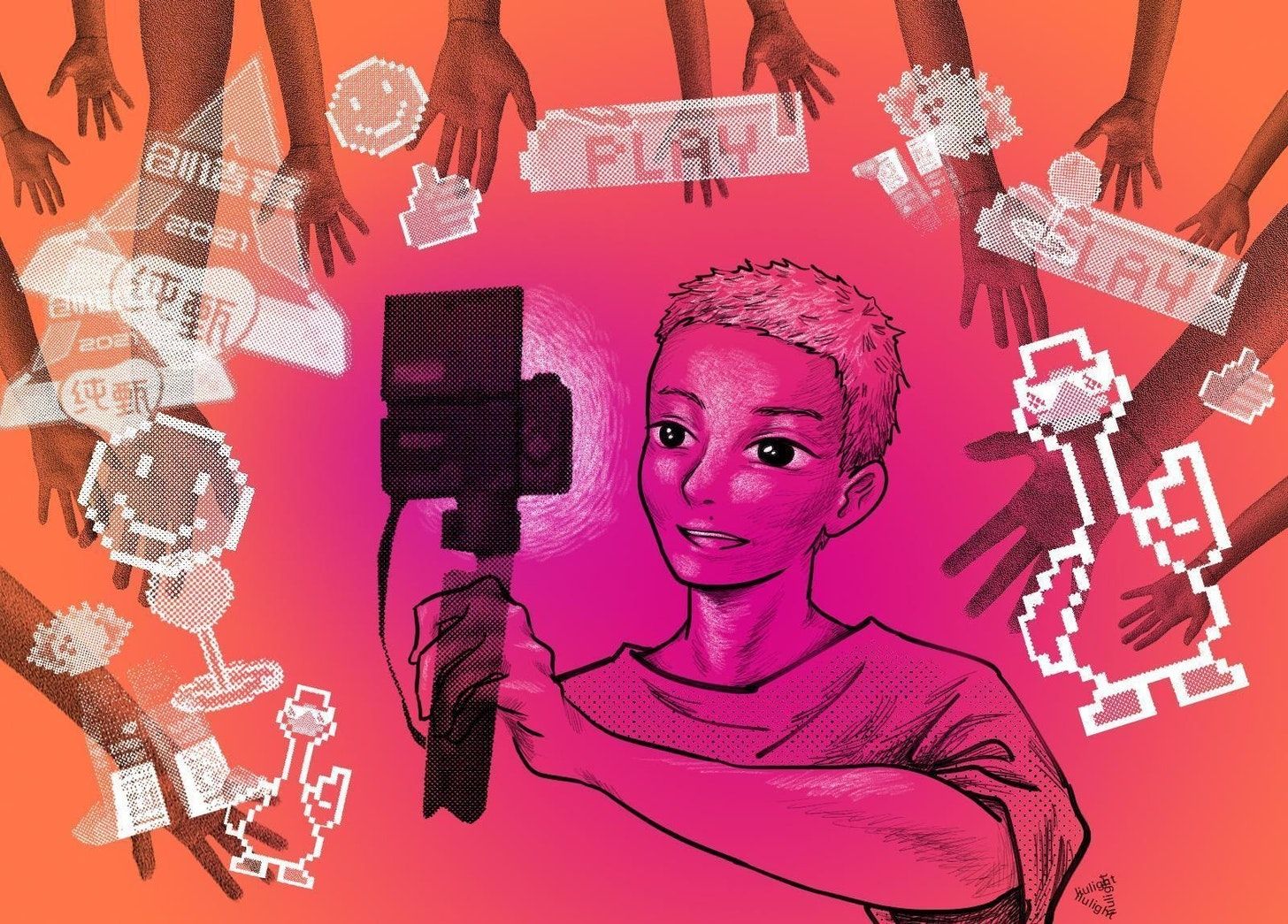This dispatch appeared in S01 Episode 5, along with Two-Way Mirror by Sridala Swami and King of Fairy Tales, King of Posts by Tianyu Fang. Cover illustration by Liu Light.
Yan: I’ve never followed an idol reality show closely until this year’s CHUANG 2021.
Out of the show’s 90 participants, competing to be part of an eventual 11-member boy band idol group, there were more than 20 from Japan, Thailand, Russia, Ukraine and America—all of them somewhere at the intersection of “Asian” and “Caucasian.” It’s apparent that Tencent’s international ambitions extend just to diaspora and China’s immediate neighborhood, but to call a show that has zero South Asian, African or Latin American presence “international” is both 1) a stretch and 2) dangerously unimaginative. This narrowness comes hand in hand with the pervasive cringe of “promoting Chinese culture,” which in the show’s telling is a series of out-dated stereotypes like Tang poems, hanfu and Kung Fu.
What really piqued my interest was an improvised dance battle from the first episode featuring Japanese street dancer Santa and classical Chinese dancer Liu Yu. I did not have high hopes for the show’s obvious spin on the so-called “international idol group,” but watching the dance battle (and reading Weibo posts from excited fans shipping Santa with Liu Yu), I thought the show might actually have something to say about cross-cultural interaction than the usual cliches.
Narrator: It didn’t.
Yan: The rest of episode one, to my disappointment, was a simmering hot pot of stereotypes. Patrick, a Thai participant, recites a schoolboy-level Tang poem, “登鹳雀楼.” When the Cuba-born Caelan sees a dance performance in hanfu, he gets excited and says, “This is what I came to China for! Embrace that Chinese culture!”
But I kept watching. The show approached “worldbuilding” like a sprawling manga series. So, like with Naruto or OnePiece, week by week, I grew more invested in the characters—fighting for their dreams through challenges, forming friendships along the way.
The storylines, built through both the show’s omnipresent cameras and fan hyper-vigilance to tiny moments of interaction, were so well constructed and edited that I felt connected to many participants as human beings, rather than as one-dimensional idol trainees. I used to think that the idol industry had a template for success, and that everyone was interchangeable. CHUANG 2021 proved otherwise. Hu Yetao (胡烨韬), an androgynous, long-haired participant, said that he wanted to challenge people’s pre-existing ideas of what made a boy idol. During the show, he experienced ups and downs that were relatable to “misfits” everywhere. In a segment to reinterpret the show’s theme song, a team made a parody version which jokes that “idol dreams” are in fact “nightmares.” Oscar, a participant whose arrogance made him a goldmine for WeChat sticker packs, showed his vulnerable side in later episodes that brought many fans (and even former haters) to tears.
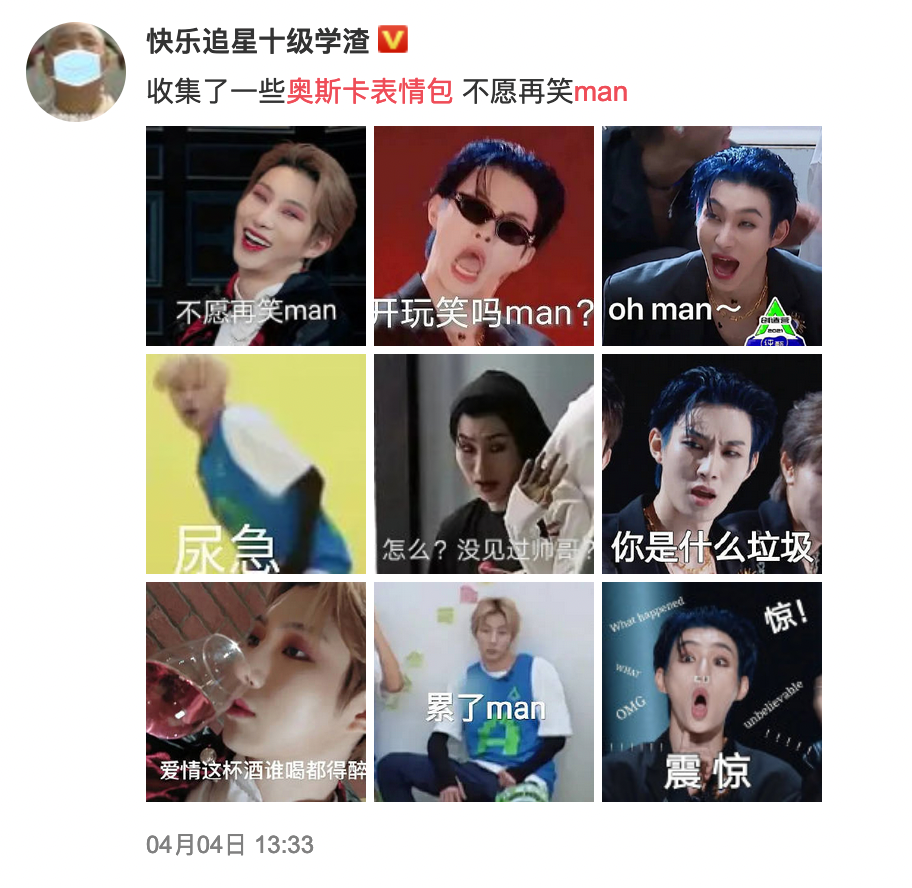
As a visual storyteller, I’m well aware that stories are “constructed” and that they only represent a version of reality, one that the show wants me to see. I’m also aware that all reality shows have pre-written scripts. However, for a show like CHUANG, with so many cameras on set, many of them rolling 24/7 (multiple participants have said the only place they had privacy was the bathrooms, where they spent hours chatting to avoid being filmed), it’s hard for someone to consistently take on a fake, scripted personality. Convinced by the authenticity and invested in the participants’ stories, my relationship with the show evolved into “zqsg,” fan lingo for 真情实感 (zhenqingshigan), a kind of non-ironic emotional investment.
What really moved me was the genuine connection between participants, especially between Chinese and foreign ones who have to cross severe language barriers. My personal favorites:
- Yu Yang and Santa teach each other dancing and singing through a mix of sign/body language and facial expressions. This friendship has an emotional payoff all the way till the final episode, where Santa dances to a song Yu Yang made.
- Zeng Hanjiang explaining to Mika a comedy of errors involving a hidden cellphone (which is forbidden in CHUANG).
ᴍᴀᴘʟᴇsᴛᴏʀʏ sᴇʀɪᴇs ᴇᴘ. ₄
— 𝗺𝗶𝗸𝗮 (@mikahashizm) March 29, 2021
on our life without smartphones at the dorm, hanjiang talked about how his 2nd phone that he tried to hide got confiscated but i didn't know he talked about that at first so he told me the story again in englishpic.twitter.com/IC7RZO6H7j
It made me realize that for a show to actually, in good faith, promote cross-cultural interaction, it has to happen on an individual level without the baggage of stereotypical cultural symbols. As participants got to know each other, their imagination of China grew, becoming more concrete and contemporary. Participants want to visit Chengdu for its underground rap scene and go to Chongqing for its spicy hot pot. They picked up internet slang like “真香” from their friends. And the “cultural exchange” between participants was never one-directional. Born in the era of the internet and globalization, this generation shared a range of different cultural references, from “Batman vs Spiderman” to Nina Simone, from Dragon Ball Z to The Titanic.

Of course, friendship is merely tangential to the main “competition” part of CHUANG, where only 11 out of 90 participants will eventually “debut,” solely decided by fans’ votes at eliminations.
There are two main channels to vote: through heavily-gamified Tencent apps styled to look like 16-bit video games (votes themselves are called 撑腰, “buffs”), and by purchasing products from the sponsor, a yoghurt brand called Chunzhen.
I am what in show lingo would be called 散粉—a “free-range” fan—meaning I didn’t participate in any organized activities to campaign for an idol. All I did was contribute a little bit of digital labor every day to cast “buffs” on Tencent Video’s app. I also bought roughly 250 kuai worth of yoghurt for extra votes.
This led me into the world of organized CHUANG fandom, where Big Yoghurt can sway elections.
(Surprisingly, the yoghurt was not bad.)
████: NEED picture of yoghurt/Yan drinking yoghurt.
Yan: Me, casual yoghurt buyer:
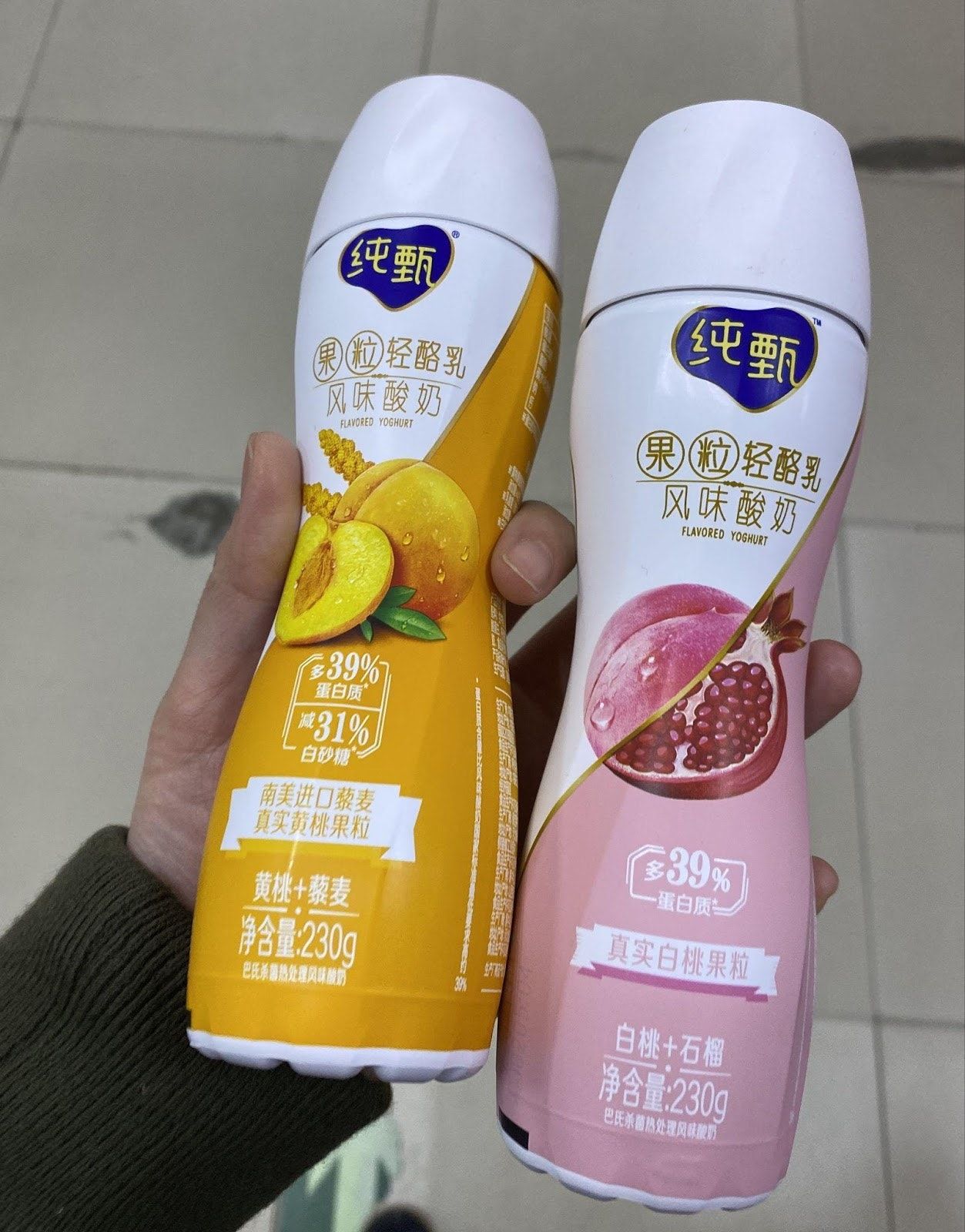
Big Yoghurt:

Tianyu: Ok, I actually went to buy and try it, and...it's pretty bad.
Henry: omg Yan hahahaha. Then again I "paid" a far steeper price in Gamestop stock to LARP Robin Hood—if only idol fans' devotion could be harnessed to manipulate financial markets.
Yan: CT’s own Caiwei has written about idol fans organizing supplies and donations during the early days of COVID in China!
Krish: That said, we are one supply chain hiccup away from Yoghurt Speculation Markets.
Yan: Organized fan groups, as opposed to free-range fans, are crucial to idols’ victories. They collect donations and channel them into elaborate ad campaigns, including purchasing billboard space in cities. A huge chunk of the money goes into buying yoghurt, to maximize the number of votes. Voting through Tencent’s apps will grant a person 4 ”buffs” per day at most, but paying 149 yuan for a box of yoghurt from the sponsor can grant 100. So fan groups run an intricate operation in which they use fan donations to buy yoghurt in bulk, and organize volunteers to scan the QR codes on the bottle labels to vote. For an average 打投女工 “voting laborer,” they can cast 2000 votes per day. Compared to the work fans were putting in for their YYDS (永远的神, aka their personal GOAT or “forever god”), my pitiful two votes per day meant almost nothing.
Krish: It’s worth mentioning here that a “second-hand” yoghurt market popped up almost immediately on Taobao/Xianyu: “I will buy all your (unopened) yoghurt after you’ve farmed them for votes.”
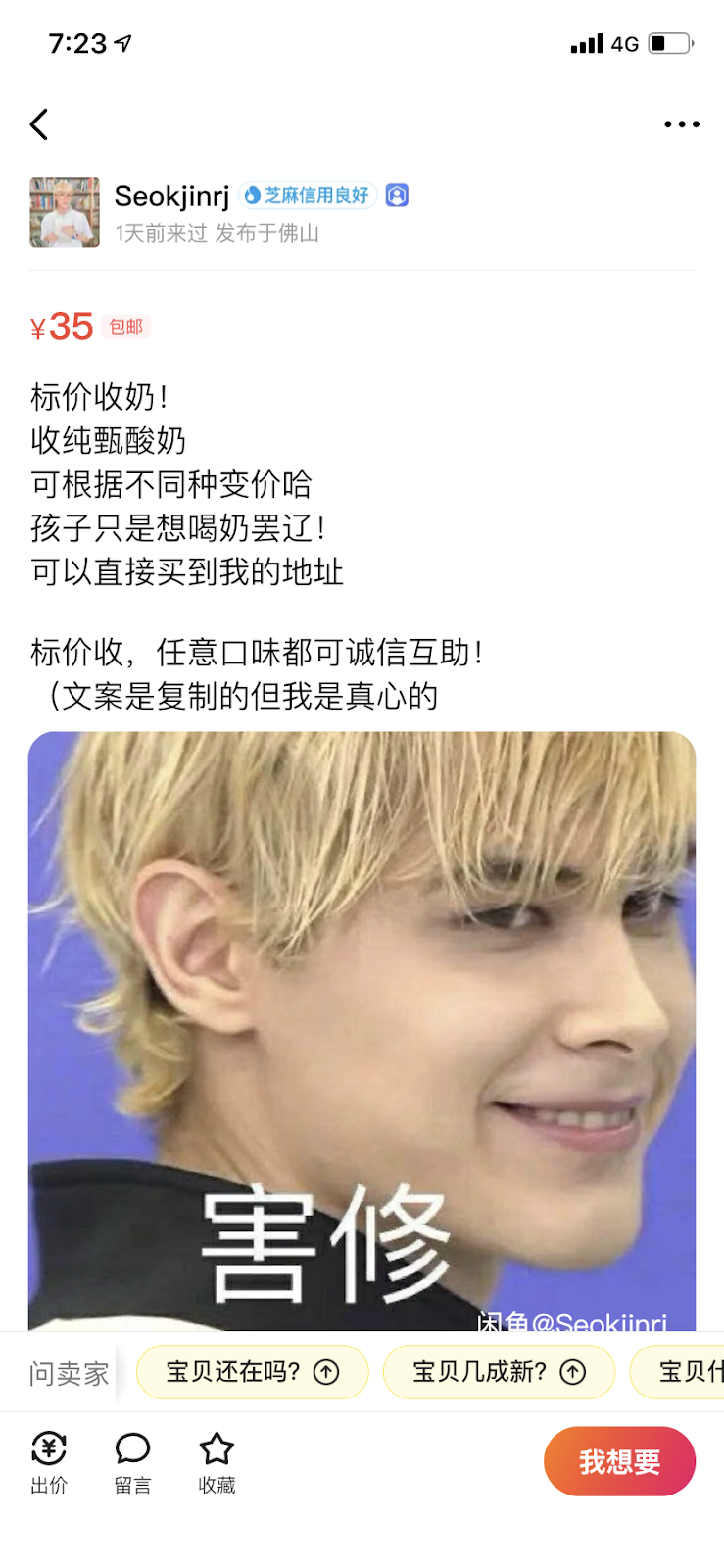
Jaime: What has been the most striking to me so far is how CHUANG seems to reach a new height of fan mobilization that resembles a similar fanaticism and media tendency in (certain Western) electoral politics as sports AND a highly covert form of sports betting. So it makes me think what is the deeper-seated mass psychology that is being satiated, besides individual audience connections to things like archetypes (misfits, etc.), belonging, and cross-cultural chemistry like the ones Yan mentioned?
Yi-Ling: To answer Jaime’s question—I think that people need idols. They need something to anchor themselves to, somebody to worship. They need a concrete reason to feel joy and anticipation when they come home from their 996 jobs in the day, and scroll through their phones at night. CHUANG provides idols, and a virtual temple to make pilgrimage to—in a safe, institutionalized form. I use the word “safe” because the idols have shelf lives. They are disposable. No idol lives beyond five years; there will always be someone new.
Yan: The seemingly democratic voting system is supposed to make fans feel powerful—their votes solely decide the fates of their idol. An extreme example of this power is Lelush, the Russian man “held hostage” by winning through votes despite pleading with fans to let him lose.
Simon: I wasn't following CHUANG to a high degree, though when Lelush kind of became an international news story, I started to notice a lot of my friends had, slightly surprisingly, been talking about him. One thing the whole affair made me think about is how there are occasionally figures who aggressively attack the structures of celebrity culture, while at the same time using those same structures to make themselves more famous—I’m thinking about punk as media outrage in late 70s Britain, or for a more contemporary example, someone like Kanye West. This kind of nihilistic stance is usually more than a bit immature, but might be sometimes necessary as a reset. Perhaps this is part of what made Lelush such a phenomenon. I’m hard pressed to think of another context in China where someone could have a public platform to say “What I’m doing right now is stupid and I hate it.”
Yan: My own participation, though, was fraught with powerlessness. Like pre-election polls, there are apps where the amount each fan group has raised is made public. Fan groups would constantly fret over the numbers, a kind of fan group self-inflicted “PUA” gaslighting—in making you feel unsafe about your idol’s ranking, they make you contribute whatever you have to safeguard your idol’s ranking. I intentionally stayed away from organized fan groups because it took away the fun of watching the show.
By the end of CHUANG, the total raised by all fan groups exceeded 150 million yuan. Although there are doubts whether this unthinkable number is real, it demonstrates how the hyper consumer-driven structure works. Fans, ultimately just sources of money in the eyes of the show, spend for their idols to prove both their idol’s star power and their own “commercial value” as a base to be pandered to. If this is an election, it’s a rigged one—neither fair nor democratic—as whoever manages to mobilize the most capital gets the biggest chance to win. Once the top-ranking idols debut, fans continue to support everything they do—from boosting their idol's album ranking on iTunes by buying multiple copies through shell accounts, to ensuring every single product the idol represents is “sold out”—all just to maintain their commercial value.
The loop goes on till fans’ enthusiasm dies, everyone moves on to the new idol, and the old one is forgotten. Of course, no fan was forced to contribute money or labor, and everyone gets what they think they want, be it a sense of purpose or belonging. But by the end of the day, it’s the companies behind the reality show, the talent agencies (including the idol) and sponsors that take all of the profits.
The final group, INTO1, is roughly evenly split between international and Chinese members. Having foreigners as group members, though, may pose unique political challenges. Idols in China are obligated to toe the party line, with both top-down pressure, and scrutiny from an increasingly nationalistic fanbase. For instance, some fan groups dug up an old article on its website to prove that Avex, a Japanese talent agency with 4 participants in the show, had once mentioned Taiwan as an independent country. The intention was to mobilize public sentiment, sabotaging the Japanese participants’ chances to debut.
Narrator: They didn’t.
Yan: Now that the show is over, I find myself dealing with withdrawal syndrome, obsessed with following the participants on social media. All the participants who didn’t debut finally got their phones (and their lives) back, and now post constantly. More than 30 participants living in Beijing attended Yu Gengyin’s birthday party. Another group recorded a TikTok video promoting Jing Long’s new song. What’s more fulfilling than to see the friendships you’ve invested ZQSG in for 2 months remain strong IRL?
Participants who cried on the final night after elimination are now happy and relaxed with their friends. Meanwhile, INTO1 is kept busy with secret photoshoots and commercial events, and the fishbowl view into the minutiae of their daily lives is gone, and with it, part of the appeal to fans like me.
Weibo user @电皮卡不断电 put it best: “People out of the loop might think this show just picks 11 people to be disappeared.”
——
Sridala: As very much an outsider to fan culture in China, the thing I still can’t get over the levels of access that subscription and other possibly dairy-based methods of payment get you in reality TV. In SDC3 [Street Dance of China S3], if you paid for it, you could choose specific camera angles from which to view performances. It makes me wonder if fans are just very wealthy? How are they able to do so much for free, and spend all the time and money they do in pursuit of their idols?
The other interesting thing about fans, their purchasing power, and their chosen idols—at least on CHUANG—is that it seems to be a speculative investment. These aren’t, I think, established idols, but potential ones; they could be throwing their yoghurt money at a boyband that, like Rocket 101, won’t last half a decade, and probably even less if any one of the international contingent by mistake wears, I don’t know, H&M or Nike.
Yan: That’s a good point—paying for content is so normalized now. Most of the daily updates on CHUANG are only available for VIP members who pay about 15 RMB/month. When certain videos or outtakes make it out into the wild, fans say jokingly, “这是我不花钱能看的吗” (“This is...free?”)
On the second point, fans know that most of these groups are 限定团, active only for two years. R1SE, the boy group coming out of CHUANG 2019, will disband this month now that INTO1 exists. My biggest question is how many fans are in fact fans of the “group,” aka 团粉? There’s no chance that all the 11 people who debut happen to be the participants you like in the show, and rivalries are rife. Their commercial value, and fans’ purchasing power, is still evaluated by individuals in the group. INTO1’s Liu Yu, for instance, already appeared on a L’Oreal livestream by himself. So what’s the point of having a group besides giving the reality show a narrative arc?
If you haven’t, consider subscribing to Chaoyang Trap, a newsletter about everyday life on the Chinese internet. It’s a regular, usually fortnightly, exploration of contemporary China, one important niche at a time. We’re interested in marginal subcultures, tiny obsessions, and unexpected connections.
Paid subscribers get access to our special deep-dives and premium issues!
Yan Cong is a Beijing-based photographer. She is not the guy in Jilin who carries a rock on his head, despite Google’s insistence.
Light is a multimedia illustrator and designer based in Los Angeles. Find them on IG @liu.light.
████ is a ███████ and ██████████ at ███████ ██████ ███ █████████ lamb leg ████████.
Jaime (bot) is a critic and translator in Beijing who lives in Dongcheng and works in Chaoyang. She is also a contributing editor at Spike.
Yi-Ling Liu is a writer in Beijing. She likes to wall-dance—both online and at the climbing gym.
Tianyu Fang is a writer who grew up in Beijing but is hardly ever in Beijing.
Krish Raghav is a comic-book artist in Beijing. He’s been watching a deranged Belgian reality show and highly recommends it.
Henry Zhang is a writer and day trader who buys high and sells cheap.
Simon Frank is a writer, editor, and musician based in Beijing who would be excited to visit an artificial island funded by shady yoghurt money.
Sridala is a poet and writer of books for very young children. She lives in Hyderabad and on Twitter.
